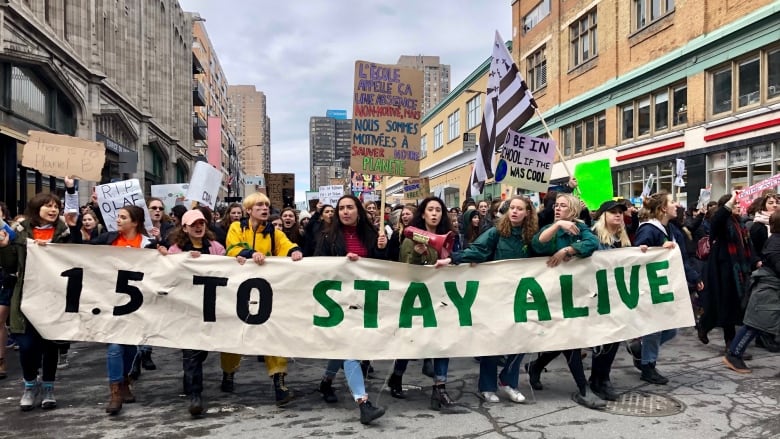On Sept. 25, approximately 900 members of the Arts Undergraduate Society (AUS) voted to strike in support of the Sept. 27 climate march, exceeding the 500 minimum needed to reach quorum.
In response, Climate Justice Action McGill (C-JAM), a group which promotes social and environmental justice, sent a petition to the AUS encouraging them to call a general assembly (GA). McGill’s Macdonald campus, the Faculty of Law, Faculty of Nursing, Faculty of Environment, and Medical Students Association have all decided to support the march by striking.
Before the AUS can officially strike, eight per cent of Arts students must vote “yes” in an online referendum that will remain open for 24 hours following the GA.
Lead organizer for Climate Justice Action McGill (C-JAM) Ayo Ogunremi, who moved the motion, referenced the 2012 student strikes in which student protests effectively blocked the Quebec government from raising tuition fees. He said that students could effect similar change through a prolonged strike.
“It is with no lack of urgency that we are convened here this evening to strike from classes on Friday, September 27,” Ogunremi said. “Today, we confront a threat to all human existence, the likes and scale of which have never been seen before. We face not only a climate crisis but a climate apartheid, in which economic, racial, ethnic, and gender divides have stratified access to the means of survival to favour those who have always wielded power and against those who have always organized to fight it.”
An amendment to the initial motion included the addition of soft picket lines on Sept. 27, which C-JAM said ideally would include one student standing in front of the door to every Arts class to make students aware of the strike.
While the AUS does not have the official capacity to cancel classes, organizers hope to send a strong message to McGill’s administration.
In addition to the one-day strike, C-JAM put forward three demands for McGill to comply with in the event of a ‘yes’ vote. These included that McGill divests from fossil fuels; that McGill acknowledges the harm that fossil fuel extraction causes, particularly to marginalized communities, and that McGill’s administration actively pressures the provincial and federal governments to implement the United Nations Declaration on the Rights of Indigenous Peoples.
Christina Lau, a lead organizer with C-JAM, was not surprised at the high turnout.
“In the last week, we’ve seen a lot of mobilization and a lot of support from almost all of the faculties,” Lau said. “A lot of people are coming out and supporting this movement.”
Students’ Society of McGill University Vice-President External Adam Gwiazda-Amsel agreed, and was encouraged by the high participation and discussion surrounding the motion.
McGill is currently the only university in Quebec that has not declared a climate emergency.









